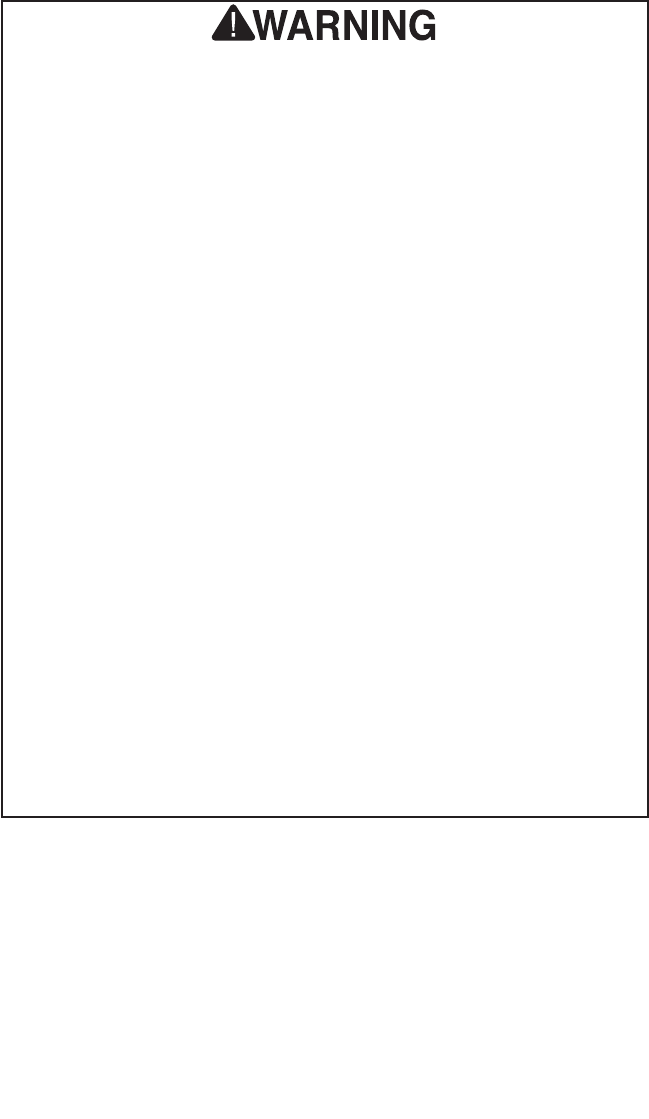
Model T10010 Wet Grinder -5-
Additional Safety Instructions for Grinders
7. LUNG PROTECTION. Grinding pro-
duces hazardous dust, which may
cause long-term respiratory prob-
lems if breathed. Always wear a
NIOSH approved dust mask or res-
pirator when grinding.
8. SIDE GRINDING. Grinding on the
side of wheels can cause them to
break and fly apart—unless the
wheel is rated for side grinding.
9. HAND/WHEEL CONTACT. Grinding
wheels have the capability of remov-
ing a lot of skin fast. Keep a firm grip
on the workpiece and position your
hands at a safe distance away when
grinding. Avoid wearing gloves, as
they may get caught in the grinding
wheel and cause even more serious
entanglement injuries.
10. TOOL REST POSITION. If the tool
rest is too far away from the wheel,
the workpiece may be pulled down,
causing loss of control and pulling
your hand into the grinding wheel.
Keep the tool rest within
1
⁄8" from the
wheel when operating.
1. EYE PROTECTION. Grinding causes
small particles to become airborne
at a high rate of speed. ALWAYS
wear safety glasses when using this
machine.
2. WHEEL SPEED RATING. Wheels
operated at a faster speed than rated
for may break or fly apart. Before
mounting a new wheel, be sure the
wheel RPM rating is equal to or higher
than the speed of the grinder.
4. WHEEL FLANGES. Only use the
flanges included with the grinder
when mounting wheels. Other flanges
may not properly secure the wheel
and cause an accident.
5. RING TEST. Perform a “ring test” on
grinding wheels before installation to
ensure that they are safe to use. A
wheel that does not pass the ring test
may break or fly apart during opera-
tion.
6. STARTING GRINDER. If a wheel
IS damaged, it will usually fly apart
shortly after start-up. To protect your-
self, always stand to the side of the
grinder when turning it ON, allow it to
gain full speed and wait for at least 1
minute before standing in front of it.


















